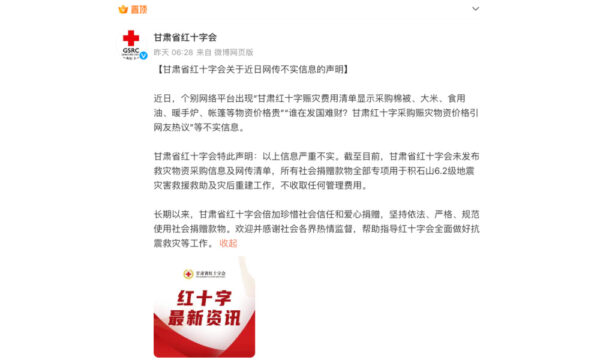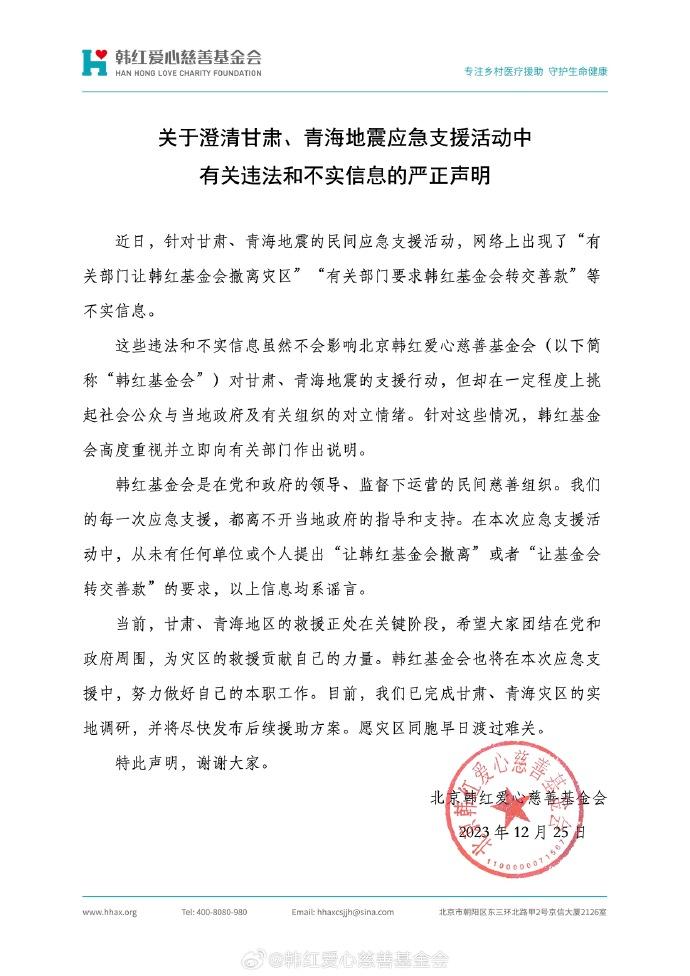China Local News
Story of Shanghai Bund “Attack by Muslim Man” Triggers Online Furor in China
A personal story on Weibo about an altercation with a Muslim man on the Bund in Shanghai has stirred wide debate.
Published
7 years agoon

A personal story by a Weibo netizen about an altercation with a Muslim man on the Bund in Shanghai has stirred wide debate on Chinese social media. The case has evoked both anti-Islamic sentiments and anger about censorship in the name of ‘ethnic unity.’
The account of a female Weibo user nicknamed ‘Ningsuk’ sparked a storm of debate over the past few days after the woman explained in detail how she was allegedly harassed by a Muslim man in Shanghai on the night of September 14th.
On her Weibo account, the woman wrote that she was “attacked by a Middle Eastern-looking Muslim man” and that the man also told her he was an Arab Muslim.
The incident caused a wave of online anger for various reasons. At first, her story mainly triggered anti-Islamic sentiment. When ‘Ningsuk’ later wrote on Weibo that her posts about the incident had been deleted for “undermining ethnic unity,” netizens were outraged about the alleged censorship of the story.
NINGSUK’S ACCOUNT
“He told me that there are many Arabs/Muslims in this area, and that they are all united.”
On the evening of September 15, Ningsuk wrote her initial long account on Weibo of the incident that happened on Thursday night.

The original post on Weibo
In her account, she writes that she arrived in Shanghai to meet her friend on Thursday after taking the train from Beijing. Since her friend was not able to meet her at the train station, they had agreed to meet later at the Starbucks on the Bund, where ‘Ningsuk’ arrived at 8.00 pm.

As ‘Ningsuk’ was having a coffee in the outside seating area, she writes that “a man with an Arabic appearance” asked her if the seat next to her was taken, joined her at the table, and started talking to her in Mandarin, asking if she was alone. “I told him I was waiting for my boyfriend,” the woman writes.
The woman then describes how the man took on a threatening tone: “He told me that there are many Arabs/Muslims in this area and that they are all united, unlike Chinese who just mind their own business. He said that with one phone call, he could have many people come over.”
Because ‘Ningsuk’ was meeting her friend there, had all her luggage with her, and her phone was almost out of battery, she did not want the situation to escalate, she writes. As he the man spoke to her about his “many friends,” she tried to reach her friend and told her to hurry.
When the man pulled his chair towards the woman and cornered her, saying “he did not have bad intentions,” and put his hands on her shoulder for “taking a picture,” she got up and ran into the Starbucks.
She writes: “He followed me inside [the shop] and forcefully grabbed me and pulled me to the corner. At this point, I started to shake and he continued to say that there were many (Muslim) people in the area that he could call over with one phone call.”
When the man then grabbed her and tried to pull out of the Starbucks, she ran behind the cashier’s desk and asked the staff for help. The man left the store, she writes, but waited for her outside and came back in at one time and attempted to slap the woman before the Starbuck’s manager stepped in and made him leave again.
After the woman’s friend arrived, the two women were threatened by the man once more outside the store before finally leaving together.
ONLINE ANGER OVER CENSORSHIP
“I should not cause racial tensions – the police contacted me.”
Ningsuk’s post received thousands of comments and over 30,000 shares. Many people responded with indignation, with some saying: “This is how it starts (..) we as Han Chinese have no feeling of safety (..).”
Triggering so many reactions, Ningsuk’s story was deleted not long after its initial publication.
The deletion also stirred much anger on Weibo, where many netizens suggested the post was only shut down because it involved a Muslim man and that personal safety issues matter more than ethnical sensitivities.
The woman ‘Ningsuk’ later posted: “I should not cause racial tensions – the police contacted me. I’m safe now, the original post has been deleted.”

Photo posted by ‘Ningsuk.’
She also confirmed to her followers that local authorities had reached out to her, that she met with them and that they were investigating the case. She also said that people were banned from commenting on any of her posts regarding this story.
SUSPECT ARRESTED
“I am very, very shocked that it turns out he is actually a Chinese person.”
On September 16, Shanghai police released a statement that they had detained a 23-year-old man for “repeatedly harassing [the] girl after he was drunk on Thursday.” According to the woman, the police stated the suspect was a Muslim of Chinese nationality.
She wrote: “They got him. The police let me see the person’s identity card and name. I am also very, very shocked that it turns out he is actually a Chinese person from a certain region. I asked the police whether or not he admitted that he had said he was an Arabic man and the police told me he admitted this, and that he says he talked big talk because he had too much to drink [that night]. They also have verified that he is a Muslim.”
Within 24 hours, her last post was also shared over 26000 times.
Many netizens commented that they were happy the police arrested the suspect, but that it still did not validate the censorship of the woman’s story. There are also people who praise the woman for “having the courage” to put her story online despite its sensitivity.
“A girl is harassed by a Muslim man in a public place. Then all she does is she goes home and writes about it on Weibo. Then the relevant departments are directly on the phone and warn her not to destroy national unity, and then the police take her to ‘drink tea’ and then the post is completely deleted. This whole issue is not a mystery,” one person responded.
STATE MEDIA RESPONDS
“The online sentiments are complicated, and most internet users are convinced that the reason the woman’s post was deleted is because she said her harasser was Muslim.”
On Monday, Chinese state tabloid Global Times responded to the issue through its ‘opinion column’ by Shan Renping (单仁平), saying that it is only the woman who confirmed the man was indeed Muslim and that the police gave no official statement about his background.
“The online sentiments are complicated, and most internet users are convinced that the reason the woman’s post was deleted is because she said her harasser was Muslim. They are also unhappy with the fact the police did not [publicly] reveal the identity of the suspect.”
The column stresses that the Chinese state will prosecute everybody equally based on their crime and not their race, ethnicity or religion: “No matter who breaks the law (..) it does not matter what race or religion they are, the officials will always handle it according to law without any hesitation.”
It also said that officials always hide religious and/or ethnical identities of people involved in crime reports to “maintain national and religious harmony.” Although there might be negative consequences to this policy, the article says, the “other negative consequences”- if they do report all suspect backgrounds – “will be even worse.”
The article said that “some people are prejudiced about the measures taken by the State to protect Muslims, as they think it is unfair. We should take their ideas seriously.” It argued that the existing problems with Muslims in Western society has “also influenced Chinese society to some extent.”
The article concludes that when it comes to handling national religious affairs, “we must believe in the Party, the country, and the government because they will do what is good for the people.”
By Manya Koetse,Miranda Barnes, Richard Barnes
Follow @whatsonweibo
Spotted a mistake or want to add something? Please let us know in comments below or email us.
©2017 Whatsonweibo. All rights reserved. Do not reproduce our content without permission – you can contact us at info@whatsonweibo.com.
Manya Koetse is the founder and editor-in-chief of whatsonweibo.com. She is a writer, public speaker, and researcher (Sinologist, MPhil) on social trends, digital developments, and new media in an ever-changing China, with a focus on Chinese society, pop culture, and gender issues. She shares her love for hotpot on hotpotambassador.com. Contact at manya@whatsonweibo.com, or follow on Twitter.

Also Read
China Insight
Red Cross Society of China in Bad Light Due to Online Rumors after Gansu Earthquake
Even though the rumors surrounding the Red Cross might be false, the public concerns surrounding charity efforts are real.
Published
4 months agoon
December 25, 2023
A handwarmer for 500 yuan ($70), a tent for 2200 yuan ($308), a blanket for 100 yuan ($14)? An online list detailing items supposedly procured by the Gansu Red Cross for earthquake relief efforts has ignited controversy on Chinese social media in recent days. Although the Red Cross has denied all rumors, the incident underscores public skepticism towards the organization.
After the devastating 6.2-magnitude earthquake struck Jishishan (积石山), a county in China’s Gansu Province’s Linxia Hui Autonomous Prefecture, on December 18, Chinese social media platforms were flooded with news related to the disaster. The overnight earthquake killed at least 148 people and left hundreds injured.
News of the earthquake resonated deeply throughout the country, and the ongoing search and rescue operations and relief efforts, hindered by landslides, ruined infrastructure, and freezing temperatures, have attracted major attention online.
While much of the discourse revolves around the goodness of the people contributing to charities and doing all they can to help victims in the affected areas, there is also public distrust surrounding the motives of some charities or helping organizations that might use the disaster as an opportunity to make a profit.
One hotly debated topic revolves around the Red Cross Society of China, after a list surfaced online of items allegedly purchased by the Gansu Red Cross for relief efforts in the aftermath of the Gansu Earthquake.

Image published on Weibo via Red Cross Society of China (@中国红十字会总会).
The procurement list raised controversy due to the high prices of the common items listed, and because of a supposed “management fee” (管理费) of 1.6 million yuan ($224k).
In response, the Red Cross refuted these claims, asserting that they had not issued any such list (#甘肃红十字称没发布任何物资清单#). On December 24, the Gansu Red Cross took to Weibo (@甘肃省红十字会) to clarify that the circulating information was “grossly inaccurate.” They assured the public that all donations would directly aid earthquake relief efforts, without incurring management fees.

The Red Cross statement on Weibo.
Even though the procurement list might be false, the public concerns surrounding charity efforts are real.
“Why does the Red Cross end up in the top trending lists every time?” one commenter wondered: “Their information should be more transparent and timely.”
Others also suggested that merely denying the rumors was not enough, and that they hoped that the Red Cross would provide more details and information to show netizens, of whom many donated money, how their charity money is being spent to help relief efforts in the affected areas in Gansu and Qinghai.
The fact that the Red Cross Weibo post did not allow any commenting did not help: “Why are you afraid to let us openly discuss this?”
Red Cross Society of China: Tainted by Suspicion
The Red Cross of China, the nation’s largest charitable organization, continues to grapple with a tarnished reputation that partly stems from the 2011 “Guo Meimei Incident.”
Guo Meimei (郭美美), whose real name is Guo Meiling, became an infamous internet celebrity in the summer of 2011 after flaunting her excessive wealth online whilst claiming to work as a “commercial general manager” for the Red Cross Society of China.
The issue severely eroded the society’s credibility, which has been designated by the government as the central public donation organization during times of disasters (Cheng 2016). From luxury handbags to sports cars, the 19-year-old Guo showed off her money on Weibo, and quickly went viral on various message boards as people were angered over corruption and potential misuse of charity money.

Guo Meimei
Despite efforts by the Red Cross Society to debunk these rumors and distance itself from Guo, speculations persisted. Many speculated about Guo’s potential ties to the organization, even if she did not officially work there. As highlighted by Cheng (2016), the public’s negative sentiment toward the Red Cross triggered “a chain of credibility crises” and even spread to other charitable groups in China.
During the 2020 Wuhan Covid outbreak, the Red Cross faced scrutiny for allegedly stockpiling public donations of medical supplies in warehouses rather than promptly distributing them to frontline medical personnel facing shortages.
The current allegations against the Red Cross of China in the aftermath of the Gansu Earthquake also echo other past controversies, such as the one they dealt with after the 2008 Sichuan quake. Red Cross officials were then also accused of misusing donations by purchasing needlessly expensive tents and vehicles.
Donations for the ‘Underdog’: The Han Hong Foundation
The growing public distrust towards the Red Cross has arguably paved the way for other Chinese charities to gain prominence. A prime example is the Han Hong Love Charity Foundation (韩红爱心慈善基金会), established in 2012 by renowned Chinese folk singer Han Hong (韩红, 1971).
Although Han Hong has been engaged in charity for many years, during which she invested a lot of her own money, the charity she established became more known after the Han Hong Love Charity Foundation was committed to aid efforts during the Wuhan Covid outbreak in 2020 and the Henan floods in 2021.

Han Hong (center), picture via Xiaohongshu fan of Han Hong.
After the earthquake in Gansu on December 18th, Han Hong’s organization immediately organized rescue teams and provided people in the affected areas with clothes and (medical) supplies. Hang Hong was able to rake in millions thanks to her reputation of being compassionate and altruistic, as well as through her strong network in China’s entertainment industry, leading numerous Chinese celebrities to support her relief efforts.
But Han Hong’s organization is also affected by the public distrust surrounding charity in China. On December 23, it was rumored that her Charity Foundation was officially asked to leave the disaster area as well as to hand over a portion of their donations.
The foundation refuted these claims by issuing a statement on December 25 (#韩红基金会辟谣#).

Statement by Han Hong Love Charity Foundation refuting rumors that their charity work was hindered by officials.
In the public view, there seems to be a big difference between perceptions of large entities like the Red Cross and other ‘official’ charitable organizations versus smaller, more independent initiatives like the Han Hong foundation, which operates as a private charitable entity.
Reflecting on the rumors surrounding both the Red Cross and Han Hong’s foundation, one Weibo commenter noted: “These rumors come into existence because so many of these so-called charitable foundations actually treat charity as their business. And so, they become ‘competitors.’”
Meanwhile, Han Hong’s organization stresses that it operates under the guidance and oversight of the party and government, and only provide emergency support through their support.
In online discussions on the power of the Red Cross versus Han Hong’s organization, some commenters suggest that it is time for the government and authorities to reflect on why a private organization would be more trusted than the Red Cross, a government organized NGO.
One Weibo commenter wrote: “What Han Hong does is true charity instead of business.” Another person replied: “The biggest disaster here is actually the erosion of public trust.”
By Manya Koetse
References
Cheng, Yang. 2016. “Social Media Keep Buzzing! A Test of Contingency Theory in China’s Red Cross Credibility Crisis.” International Journal of Communication, June 2016: pp. 3241+.
Get the story behind the hashtag. Subscribe to What’s on Weibo here to receive our newsletter and get access to our latest articles:
Spotted a mistake or want to add something? Please let us know in comments below or email us. First-time commenters, please be patient – we will have to manually approve your comment before it appears.
©2023 Whatsonweibo. All rights reserved. Do not reproduce our content without permission – you can contact us at info@whatsonweibo.com.
China Brands, Marketing & Consumers
Tsingtao Brewery ‘Pee-Gate’: Factory Worker Caught Urinating in Raw Material Warehouse
The pee incident, that occurred at a subsidiary Tsingtao Beer factory, has caused concerns among consumers.
Published
6 months agoon
October 21, 2023
A video that has circulated on Chinese social media since October 19 shows how an alleged worker at a Tsingtao Beer factory climbs over a wall at the raw material production site and starts to urinate.
The incident reportedly occurred at the Tsingtao Beer Factory No. 3, a subsidiary of the Tsingtao Brewing Company, located in Qingdao, Shandong.
This is the viral video showing how an alleged worker at the Tsingtao Beer Factory 3 climbs over a wall at the raw material production site and starts to urinate. Many people think it's an undercover operation by a rivaling company: one person peed, another leaked the video? 🍻🤢 pic.twitter.com/eJcYljo2aQ
— Manya Koetse (@manyapan) October 21, 2023
After the video went viral, the Tsingtao Brewery Company issued a statement that they took the incident very seriously and immediately report it to the authorities, who have started an investigation into the case. Meanwhile, the specific batch in production has been halted and shut off.
The incident has caused concern among consumers, and some commenters on social media wonder if this was the first time something like this has happened. “How do we know this hasn’t happened many times before?”
Others speculate about what might have motivated the man to urinate at the production site. There are those who believe that the man is part of an undercover operation orchestrated by a rivaling company, aimed at discrediting Tsingtao. It’s even suggested that there were two ‘moles’ leaking in this incident: one doing the urinating, and the other doing the video ‘leak.’
Meanwhile, there are voices who are critical of Tsingtao, suggesting that the renowned beer brand has not effectively addressed the ‘pee gate’ scandal. It remains uncertain how this incident will impact the brand, but some netizens are already expressing reservations about ordering a Tsingtao beer as a result.
But there are also those who joke about the “pissing incident,” wondering if Tsingtao Beer might soon launch a special “urine flavored beer.”
By Manya Koetse
Get the story behind the hashtag. Subscribe to What’s on Weibo here to receive our newsletter and get access to our latest articles:
Featured photo by Jay Ang (link).
Spotted a mistake or want to add something? Please let us know in comments below or email us. First-time commenters, please be patient – we will have to manually approve your comment before it appears.
©2023 Whatsonweibo. All rights reserved. Do not reproduce our content without permission – you can contact us at info@whatsonweibo.com.
Subscribe

“Old Bull Eating Young Grass”: 86-Year-Old Chinese Painter Fan Zeng Marries 36-Year-Old Xu Meng

Chengdu Disney: The Quirkiest Hotspot in China

Where to Eat and Drink in Beijing: Yellen’s Picks

Weibo Watch: Burning BMWs

More than Malatang: Tianshui’s Recipe for Success

The ‘Two Sessions’ Suggestions: Six Proposals Raising Online Discussions

A Snowball Effect: How Cold Harbin Became the Hottest Place in China

Jia Ling Returns to the Limelight with New “YOLO” Movie and 110-Pound Weight Loss Announcement

Top 9 Chinese Movies to Watch This Spring Festival Holiday

Party Slogan, Weibo Hashtag: “The Next China Will Still Be China”

From Pitch to Politics: About the Messy Messi Affair in Hong Kong (Updated)

Weibo Watch: Frogs in Wells

Looking Back on the 2024 CMG Spring Festival Gala: Highs, Lows, and Noteworthy Moments

Two Years After MU5735 Crash: New Report Finds “Nothing Abnormal” Surrounding Deadly Nose Dive

More than Malatang: Tianshui’s Recipe for Success
Get in touch
Would you like to become a contributor, or do you have any tips or suggestions? Get in touch here!
Popular Reads
-

 China Insight1 month ago
China Insight1 month agoThe ‘Two Sessions’ Suggestions: Six Proposals Raising Online Discussions
-

 China Insight3 months ago
China Insight3 months agoA Snowball Effect: How Cold Harbin Became the Hottest Place in China
-

 China Arts & Entertainment3 months ago
China Arts & Entertainment3 months agoJia Ling Returns to the Limelight with New “YOLO” Movie and 110-Pound Weight Loss Announcement
-

 China Arts & Entertainment2 months ago
China Arts & Entertainment2 months agoTop 9 Chinese Movies to Watch This Spring Festival Holiday





